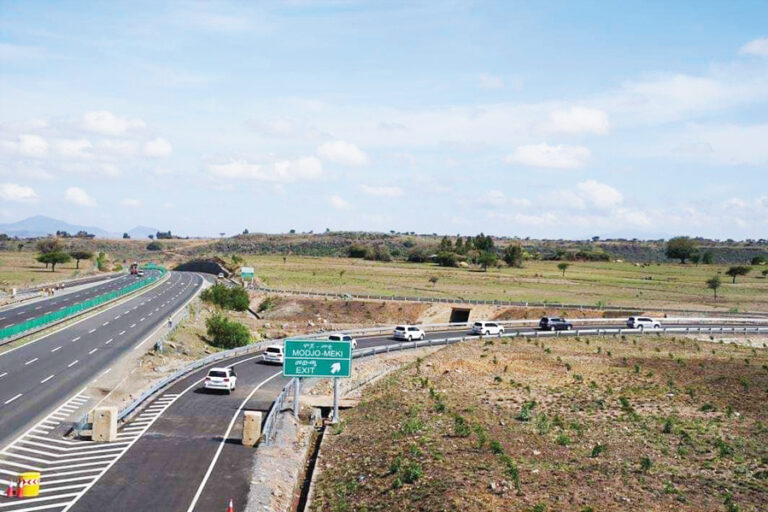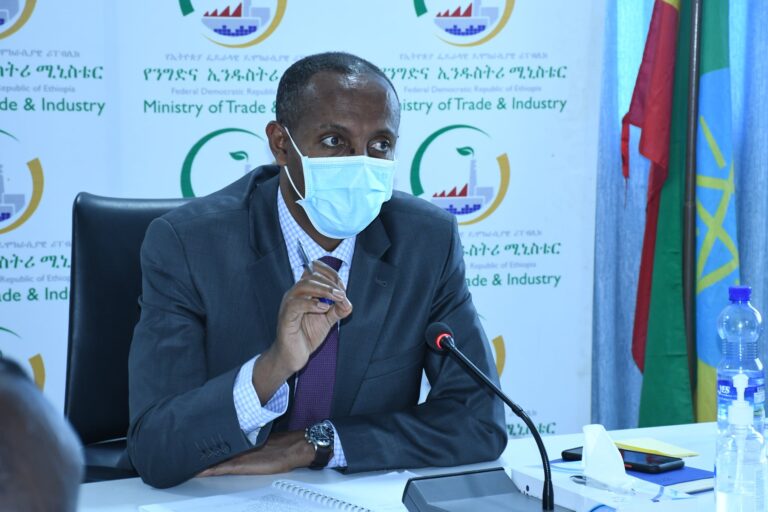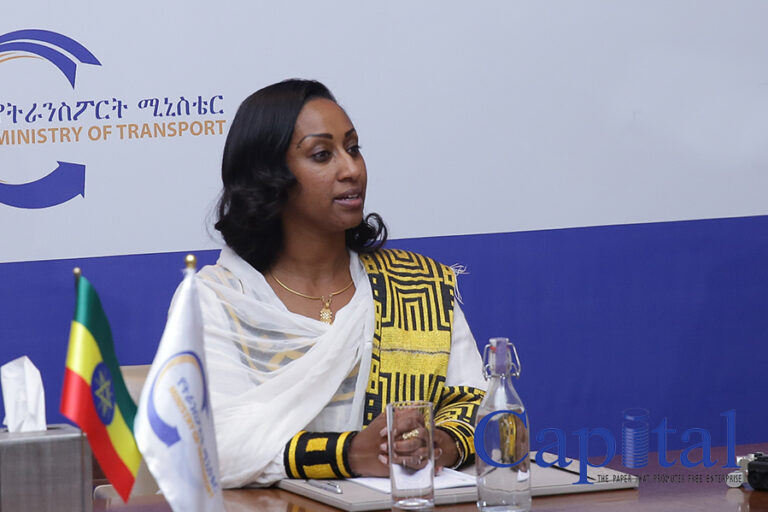Ethiopia inaugurated the Modjo-Meki-Batu 92 km road
Ethiopia inaugurated the Modjo-Meki-Batu 92 km road, completing the first phase of the country’s contribution to Trans-Africa Highway in the presence of high government officials and other multinational organization heads. Farmers can now create market linkages easily, and transportation services will be more efficient. With the finalization of the project it will increase the flow of tourism and strengthening of industrial parks. Completion of the highway will pave the way for the country’s economic, social and political integration across the continent.
Industrialists blast gov’t for equal ground
During the closed forum that was held on Wednesday, local industrialists claim that government is not providing equal treatments for the Ethiopian investors on FDIs, Capital learnt.
Sources revealed that on the meeting held at Sheraton Addis on Wednesday May 5, local manufacturers have expressed their disappointment on the behavior of government which is seen to give different privileges for foreign investors that are not accessible for Ethiopians.
Investors who attended the meeting aired out their frustration blasting government by expressing that the unfair treatment has cornered them out from the competition whilst leaving the industry sector to blossom for the foreign investors.
The closed session which was held under the title ‘Dialogue Forum between the Public and Manufacturing Industry Sector Actors’ geared to engage the likes of Adanech Abebe, Deputy Mayor of Addis Ababa, , Debele Kabeta, Commissioner of Customs Commission, and Jantrar Abay, Deputy Mayor of Addis Ababa attended.
Sources told Capital that, Adanech did not attend the event because of other urgent matters.
Local manufacturers including prominent and huge investors were major attendees who expressed their grievance on the handlings of the government.
One of the participants told Capital that the investors have appreciated the government latest way to provide investment lands for those with really needs than the previous malfunction practice, “Otherwise, mostly participants expressed their complaints stating that they not equally seen in comparison with other foreign investors.”
Investors raised the issue that the tax authority is penalizing them by comparing invoices with foreign investors. “The over invoice issue is the new threat that aggravates us to express our concern for the government. Foreign investors are coming with exaggerated invoice (over invoice), while the actual price of the given product might be lower by half,” one local investors told Capital about the issue and explained that foreign investors are using the over invoice for illicit foreign currency flow, exaggerating their production cost that leads them to hide tax.
“However, traditionally the tax authority is using the higher invoice value as a benchmark to calculate levy and based on that it is penalizing local investors extra sum on their imports,” a participant told Capital.
The other issue that was raised at the discussion that was only attended by local investors was that foreign manufacturers are openly selling their products without receipt, “while no one accused them,” participants said.
They added that the foreign investors have no issue about access to foreign currency that National Bank of Ethiopia (NBE) is implementing a directive to access foreign currency on suppliers’ credit, while local investors are in trouble.
For over three years to now, NBE has revised the suppliers’ credit directive and introduces a scheme that only FDIs to access goods on credit. Recently, Eyob Tekalgne, State Minister of Finance, told media that the government evaluated the gap that excluded local industrialists from access materials and inputs on suppliers’ credit. He expressed that the directive has revised to include local investor but it is so far yet to be applied for the neglected.
At the forum, local investors argued that they have to be treated in the same way with other investors and asked the government officials to level the completion grand for all actors.
“The foreign investors should pay the tax equally that we are paying,” participants claimed at the forum according to sources. “Give us the privilege that NBE gives for others,” they added.
Regarding the tax issue one of the participants told Capital that the government should compare the income tax settle between the local investors and foreigners “despite there are huge and many foreign investors in the country you may not see much of them on the higher tax payers list that the government recognizes every year,” he says, adding, “rather than not paying required duties they are accessing several incentives and relief.”
“The comments given by investors at the forum were accompanied by shouting and applause of participants, which shows me how much the local investor are in depressive condition,” one of the prominent investor who attended the event told Capital.
Sources said that despite participants expressing their angers and claims at the event, satisfactory promises or responses were not given from the stage.
Ethiopia’s future transport outlook
Ethiopia plans to build five additional corridors in the coming ten years. Based on the ten years perspective plan, the transport sector has six strategies, 22 sub strategies goals and 98 interventions for the logistics sector.
For the implantation of the strategy, the Council of Ministers’ have formed a National Logistics Council that is chaired by MoT and includes Minister of Trade and Industry, Ministry of Revenue, Ministry of Agriculture, Ministry of Finance, National Bank of Ethiopia, Customs Commission, Investment Commission and representative of the private sector logistics actors.
As one of the target area, the Council is looking at an alternative port service in order increase the overall logistics service efficiency, Dagmawit Moges, Ministry of Transport told Capital, elaborating that in the coming ten years the ministry has planned to build about 5 port corridors.
“By increasing number of alternative ports and corridors it could be a simpler way in addressing the issues all over the country,” the transport minister emphasized.
Recently, the country has started to use port Berbera as another alternative corridor to the Djibouti port which accounted for 99 percent of flow of goods in and out of the country which declined to 92 percent when using Berbera, highlighted Dagmawit foretelling that there are certain activities on the works to start using Port Sudan in addition.
Besides building corridors the government is considering several interventions which will be included in the logistics strategy including management of port which will be determined by the ten year transport plan.
Dagmawit expounded that the ten year development plan on the transport sector will be crucial for other economic development as well since logistics is interlinked with economic development.
The transport sector development has included diversified sub sectors in different investment. To attain the goals, government under its transport sector policy revision has decided to open up the highly closed logistics and other transport sub-sector in different schemes including; joint venture, public private partnership and full investment.
On May 6,2021 the Ministry of Transport have signed the first Memorandum of Understanding (MoU) in on the logistic service with DP world to determine the potentials for developing logistics infrastructure and the provision of end to end logistics services along the corridor to unlock major economic benefits for Ethiopia.
The transport sector development in general is expected to consume 3.2 trillion birr or USD 75 billion in the coming decade, while the sector that is mostly preserved for public and domestic investors will expand its playground to foreign investors in different schemes.
From the 3.2 trillion birr, 69.55 billion birr will be covered by the money collected from the service provided by the sector and the rest will be financed by the government budget, which is about 2.2 trillion birr, loans of 582 billion birr and foreign aids of 164.5 billion birr. The intervention of the private sector including foreign investors has also been considered as a major source of investment in the sector.
Similarly, a further increase of the number of dry ports from 8 to 11 in 2030 is expected. Similar developments such as building cargo vehicles terminals to increase the number from 1 to 23 and 4 new one stop borders to increase the number are in the works.






